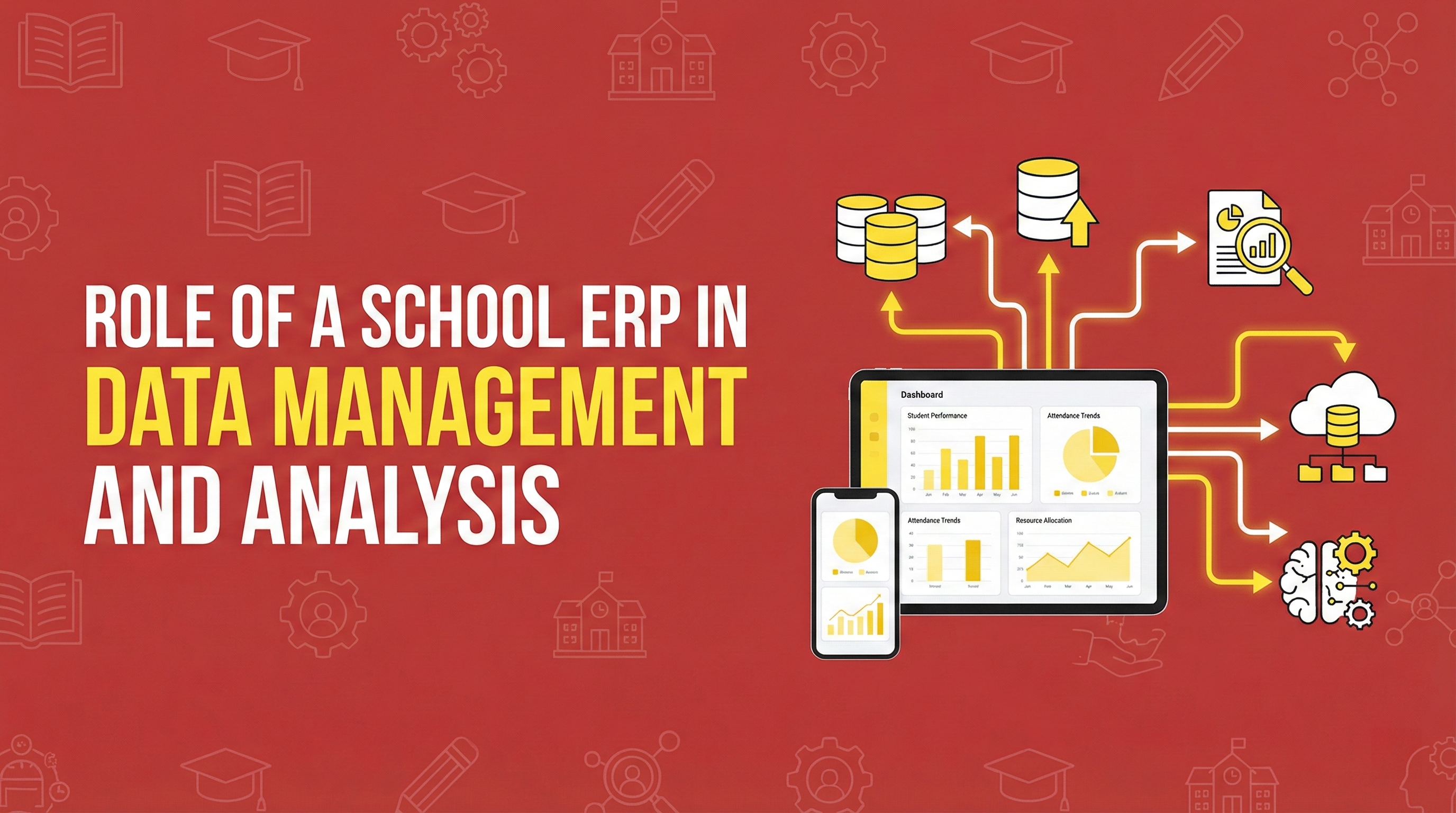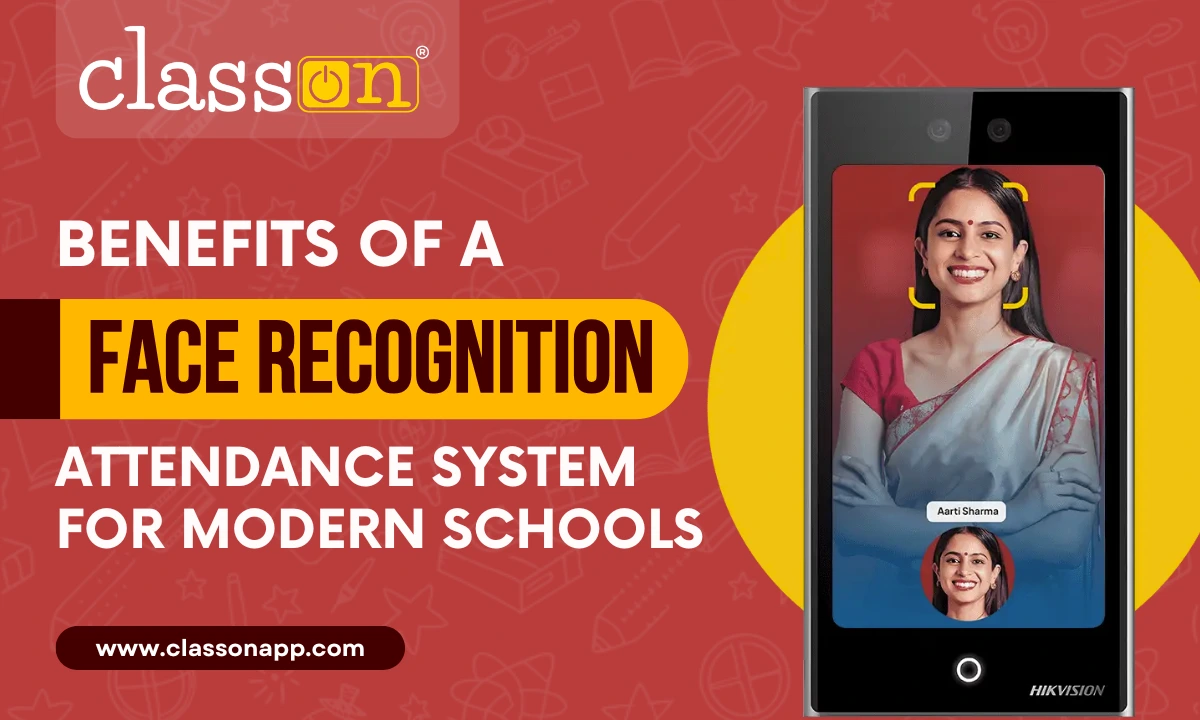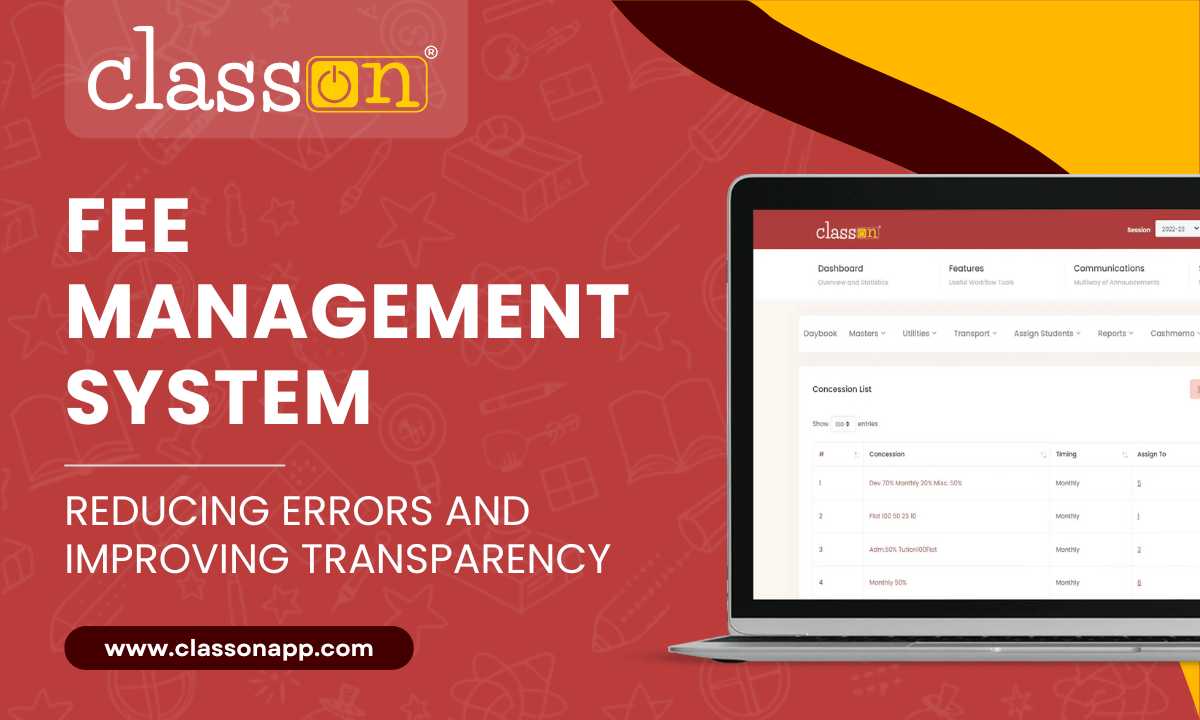
In today’s digital age, schools constantly look for ways to streamline their operations and improve the learning experience. One such method is implementing a School Enterprise Resource Planning (ERP) system. A school ERP can play a crucial role in data management and analysis, helping schools to make data-driven decisions and improve student outcomes.
What is a School ERP
A School ERP is an integrated software system that manages and automates various administrative and academic processes within a school. It typically includes modules for student information management, attendance tracking, fee collection, examination management, timetable scheduling, etc.
The Role of a School ERP in Data Management
One of the primary advantages of school management software is that it provides a centralised platform for data management. This means that all the data related to a student, including their personal information, academic performance, and attendance, is stored in a single database, making it easier for school administrators and teachers to access and manage this data.
Schools can generate various reports with a School ERP, including student performance reports, attendance reports, fee collection reports, and more. These reports can be customised to meet the school’s specific needs and provide valuable insights into the school’s operations.
The Role of a School ERP in Data Analysis
Data analysis is the process of examining data to draw insights and make informed decisions. A School ERP can be crucial in data analysis, providing schools with the tools to make data-driven decisions.
For example, a School ERP can help identify trends in student performance over time, such as which students are struggling in a particular subject or which students are consistently absent. This information can then be used to provide targeted support to these students and help them improve their academic performance.
Similarly, a School ERP can help schools identify areas for improvement in their operations, such as which teachers are consistently marking students late or which classes have high levels of absenteeism. By analysing this data, schools can identify the root cause of these issues and take steps to address them.
The Benefits of a School ERP in Data Management and Analysis
Improved efficiency
A School ERP (Enterprise Resource Planning) system automates various administrative tasks in a school, including student registration, attendance tracking, grade management, and fee collection. By automating these processes, the system saves time, increases efficiency, and reduces the likelihood of errors that can occur during manual data management. This allows school staff to focus on other critical tasks while ensuring the accuracy and security of student information. Overall, a School ERP system can significantly improve the productivity and effectiveness of school administrative functions.
Better communication
A School ERP (Enterprise Resource Planning) system provides a centralised database that can be accessed by school administrators, teachers, and parents. The system enables them to share information efficiently and effectively, which improves communication and collaboration among stakeholders. For example, administrators can update student information, teachers can enter grades and attendance, and parents can view their child’s progress in real-time. This accessibility to information and ease of communication leads to more informed decision-making and ultimately helps enhance students’ learning experience.
Data-driven decision-making
A School ERP (Enterprise Resource Planning) system allows schools to analyse data and make informed decisions, improving student outcomes and school operations. The system collects, stores, and processes student performance, attendance, teacher evaluations, and resource allocation data. With this information, school administrators can gain insights into areas that need improvement, identify patterns and trends, and make data-driven decisions that positively impact student learning and school operations. This leads to continuous improvement, increased efficiency, and better student outcomes.
Increased transparency
A School software ERP system enables parents to easily access their child’s academic performance and attendance records, promoting transparency and accountability between the school and parents. With this technology, parents can monitor their child’s progress in real-time, making it easier to address any academic or attendance issues early on. Improved communication and access to this information can lead to greater involvement in their child’s education, resulting in a more successful academic journey.
In conclusion, school management software can play a crucial role in data management and analysis within a school. Schools can make data-driven decisions and improve student outcomes by providing a centralised platform for data management and the tools to analyse this data. The benefits of a School ERP are numerous, and schools implementing such systems have seen improvements in efficiency, communication, transparency, and decision-making. Therefore, schools need to consider implementing a School ERP system to streamline their operations and improve the learning experience for their students. Click here to read about top 10 best school erp software in India






